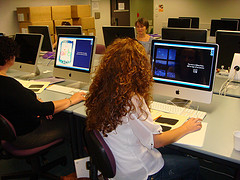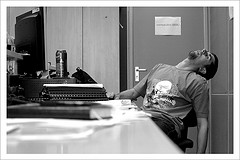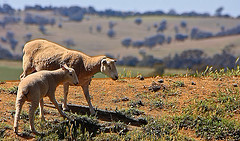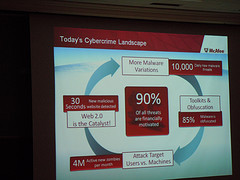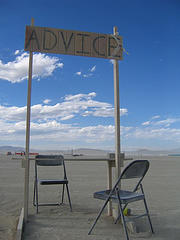
Photo credit; Laughlin Elkind on Flickr
Australia’s greatest entrepreneurs recently shared the best piece of business advice they’ve ever received with StartUpSmart.com. Here is the rundown.
1. Michael Fox – co-founder of Shoes of Prey — Keep focused on one core product
His favourite piece of advice came from investors Mike Cannon-Brookes, (of Atlassian), and David Cunningham: “Keep focused on the one core product; don’t try to do more until you’ve nailed that.”
2. Dean Taylor – owner of online wine selling site Cracka Wines – Always have a back-up plan
His favourite piece of advice is a crucial one for business owners, who always need to be prepared with a back-up plan.
“Never walk into a room that you can’t walk out of,” he says.
“The person who said it to me was Brett Chenoweth, an old friend and the former CEO of APN. He swears by it,” Taylor says.
3. Mick Liubinskas — Pollenizer founder – Run the numbers
When Liubinskas enjoyed a short stint at IBM, he met a friend — Kurt Bilderback — who told him to “always run the numbers”.
“Mick, you’ve got to run the numbers. Always. Not to get answers, but to know what the questions should be.”
4. Gabby Leibovich — The difference between success and failure
Leibovich said his favourite piece of advice was actually something he received just a couple of weeks ago from retail entrepreneur Joe Segal:“The problem with people is not that they aim too high and fail, but that they aim too low and succeed.”
5. Gary Ng — manager of E-Web Marketing, a digital agency which has won several BRW “Best Place to Work” awards — Get rid of the rules
His favourite piece of advice was provided to him by his mentor, Anthony Robbins: “The more rules you have about how people have to be, how life has to be for you to be happy, the less happy you’re going to be.”
6. Bruce Billson — Australia’s Small Business Minister — Get to work
His favourite piece of advice actually comes from Jason Gehrke, franchising expert: “For every $1000 you plan to invest in your business spend an hour of due diligence, planning and working out how you can profitably engage your customers.”
7. Dave Slutzkin — head of website marketplace Flippa – Listen to your customers
His favourite is a mantra for good customer service — although he can’t quite remember who told him the proverb.
“Customers have your best ideas,” he says.
8. John Winning — head of Appliances Online — Control the supply chain
Winning’s favourite piece of business advice actually comes from his grandfather:
“You can’t control what you sell something for; all you can control is what you buy something for. The market controls the sell price, so the only thing you can control is the supplier relationship and this will help you remain competitive.”
9. Andre Eikmeier — Co-founder of Vinomofo — Be careful what you spend money on
His favourite piece of advice comes from his “biggest inspiration”, entrepreneur Seth Godin.
“Don’t spend your resources on ‘customer acquisition’,” he says.
10. Tristan White — Founder of aged healthcare business The Physio Co. — Don’t try to do too much at once
His best piece of advice comes from George Nadaff, the founder of the American fast food chain Boston Market: “You can’t sit on two toilets.”
11. Naomi Simson — Head of ‘experiences’ retailer RedBalloon — It’s in your control
This proverb comes from a colleague who attended a presentation.
“If it’s meant to be, it’s up to me,” she says.
12. Jacqueline Arias — Founder of Republica Coffee — Your products aren’t special
Her favourite piece of advice comes from Carolyn Cresswell, who founded Carman’s — one of Australia’s other food-based success stories.
“Stop believing that your products are special, and start playing the very best game you can play.”
13. Dean Ramler — Founder of online furniture business Milan Direct — Details matter
His best piece of advice comes from his grandfather, who also worked in the furniture trade.
“There is no such thing as a detail too minor!”
To read more about this story, click here.
